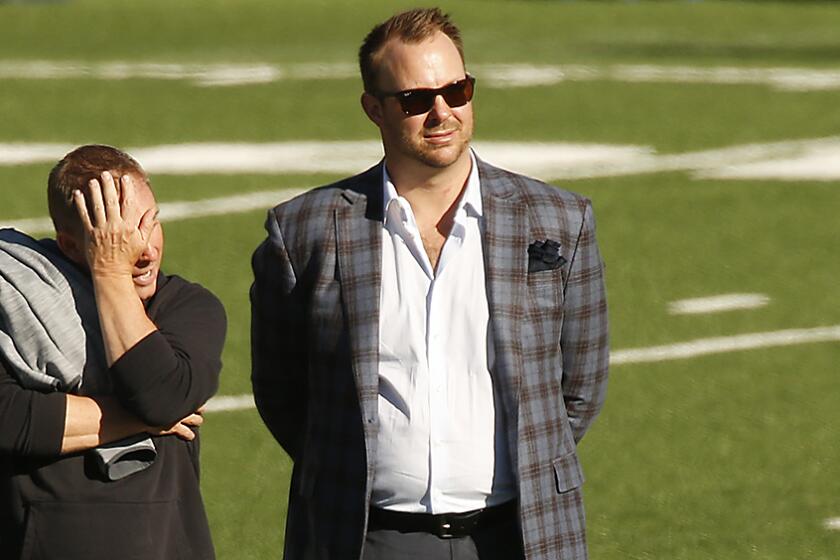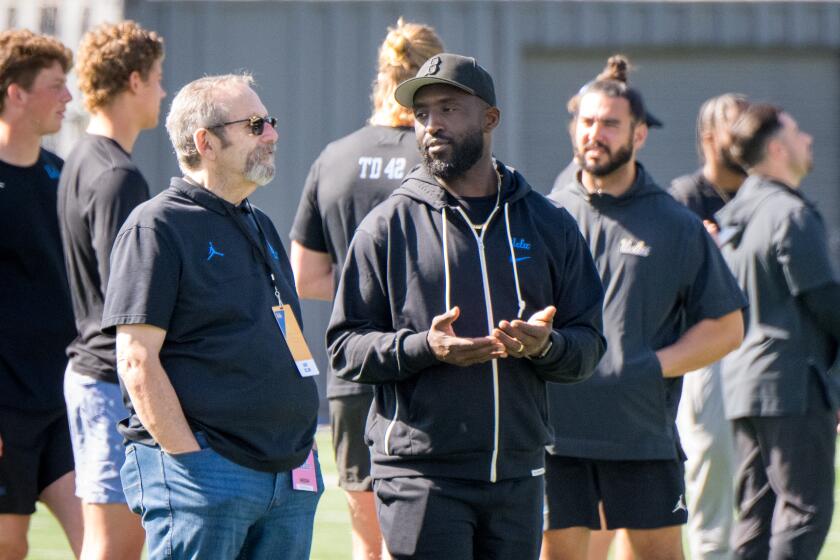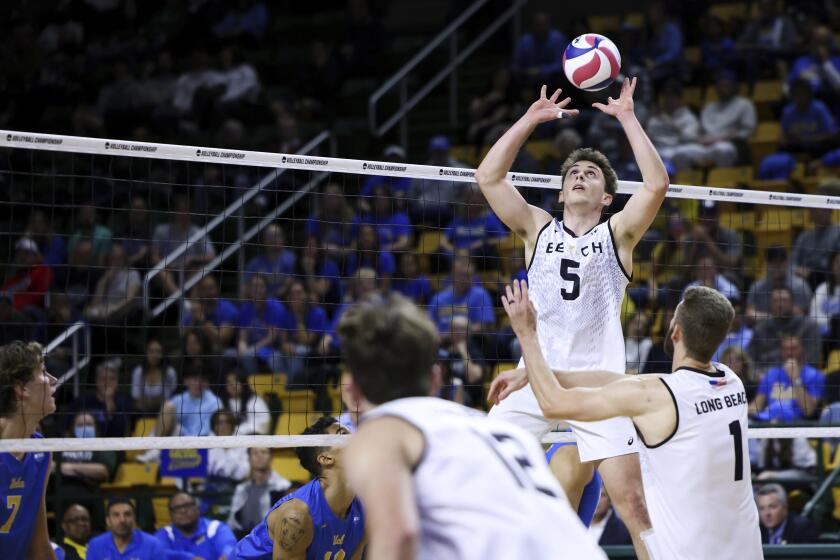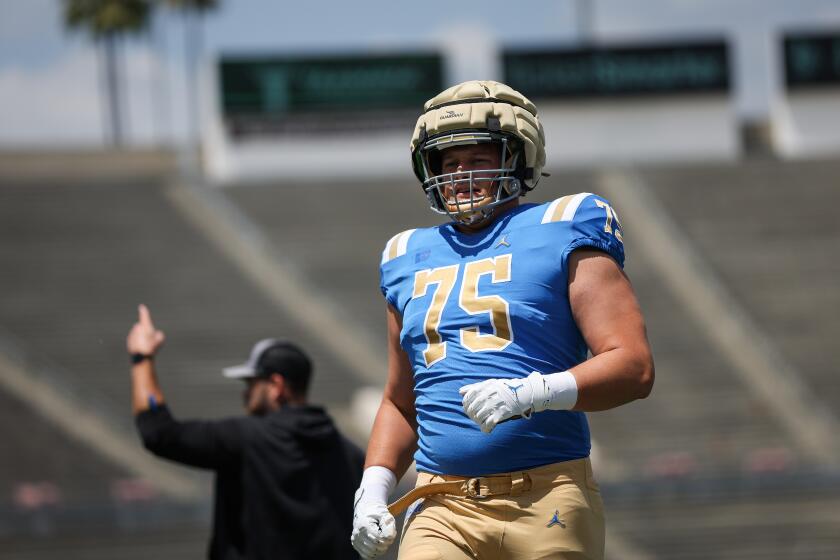John Wooden’s coaching in the game of life takes center stage at UCLA memorial
It was a day for telling stories at Pauley Pavilion, a day for talking about John Wooden in terms that had little to do with basketball.
His adages and poems. The way he used to counsel his players on love and family. A sharp sense of humor he didn’t mind turning on himself.
Like that Sunday in 1964, the day after he led UCLA to the first in a string of national championships, when Wooden stepped outside the team hotel and suffered a direct hit from a bird flying overhead.
Turning to his wife, he quipped: “Maybe Johnny’s not as good as he thinks he is.”
The man honored at a public memorial service on the UCLA campus Saturday, three weeks after his death, was more than a coach to friends and former players who spoke.
“He used to tell us all these little things,” Keith Erickson said. “It was about life.”
At roughly the same time the U.S. faced Ghana in the World Cup and the UCLA baseball team was playing in the College World Series, an estimated 4,000 people gathered in Westwood under gloomy skies, filing inside the arena that Wooden made famous by guiding the Bruins to 620 victories and 10 national titles in 27 seasons.
A stage stood at one end beneath a giant video board that showed Wooden and his well-known Pyramid of Success. His favorite songs — a selection that included Doris Day, Johnny Cash and Elvis Presley — played over loudspeakers.
The guest list included Mayor Antonio Villaraigosa, former Lakers star Jerry West, Dodgers Manager Joe Torre and New York Yankees shortstop Derek Jeter.
In an upper section open to the public, Paula Drutz, a 47-year-old teacher from Santa Monica, said she became a fan after reading several of Wooden’s many books.
“His Pyramid of Success … I really have taken that as an example of how to live my life,” Drutz said. “For me, he’s like a hero.”
Chris Ah San had also read the coach’s writings and said he used them as a guideline during his years as a student activist on the UCLA campus.
“He inspired me,” said the 21-year-old, who recently graduated with degrees in economics and music performance.
As the memorial began, a spotlight illuminated the place where Wooden often sat to watch games after his retirement. The university announced that his seat would be retired.
“It is his seat,” Athletic Director Dan Guerrero said. “No one else will ever sit there.”
Over the following 90 minutes, more than a dozen speakers stepped to the podium to share their memories of Wooden.
UCLA Chancellor Gene Block called him “a man who never stopped teaching and learning.” Broadcaster Al Michaels remembered that he disliked being called the greatest college coach.
“He didn’t want to hear that, but I told him that, Coach, you have only yourself to blame,” said Michaels, who once worked on Bruins telecasts. “You shouldn’t have gone out and won those 10 national championships in 12 seasons.”
The university showed a short film on Wooden’s life and Dodgers broadcaster Vin Scully appeared by way of videotape, talking about Wooden’s unending optimism.
“The coach kept his heart unwrinkled,” Scully said. “He was truly triumphant.”
But most of the day belonged to former players and recollections of Wooden’s sense of humor, which often was overlooked.
Jamaal Wilkes — who played at UCLA under the name Keith — spoke of the day when he was selected in the NBA draft amid concerns that he was too skinny for the pros.
“You never have to worry about Keith pulling a muscle,” Wooden told reporters, “because he doesn’t have any muscles to pull.”
Kareem Abdul-Jabbar recalled feeling a little too proud of a report card that included several A’s — until Wooden gently chided him.
“‘You did want to graduate from UCLA, didn’t you?’” he recalled the coach saying. “He knew when to stick the pin in the bubble and let some of the hot air out.”
The testimonials ended up focusing more on life than basketball. The players had all made a point of visiting Wooden after their sports careers ended, hungry for advice about marriage, business and raising children.
They realized that’s what Wooden had been talking about all along.
“After we were through [playing], every one of us would say ‘Why didn’t I listen?’ ” Erickson explained. “That’s why so many guys were always going back out to his place and spending time with him.”
Go beyond the scoreboard
Get the latest on L.A.'s teams in the daily Sports Report newsletter.
You may occasionally receive promotional content from the Los Angeles Times.




